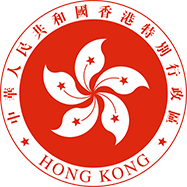Why to invest in Hong Kong


| Hong Kong at a glance | |
|---|---|
| LOCATION | Asia Pacific |
| CAPITAL | Hong Kong |
| CAPITAL | English and Cantonese |
| CURRENCY | Hong Kong Dollar |
| POPULATION | 7,267,000 inhabitants 2014 |
| AREA | 1,104 km2 |
| POLITICAL SYSTEM | Special administrative regime belonging to China |
| PIB | 290.89 thousand million US$ 2014 / 55,084.20 US$ per capita 2014 |
| Source of economic figures: World Bank | |
Due to its political stability and continued economic growth, the independent region of Hong Kong is considered one of the most prosperous areas of south east Asia to establish commercial and financial relations.
Hong Kong has a strategic geographic situation that allows it to be one of the most interesting jurisdictions to establish business with the neighbouring states of China or Japan. In addition to having a highly prestigious reputation as a financial centre, its privileged geographic location has allowed Hong Kong to become one of the Asian regions that receives the most foreign investment, reaching US$ 103.2054 million, according to the last data by the United Nations Conference on Commerce and Development.
Hong Kong has designed a highly appropriate legal and tax regime for foreign investments, offering attractive tax advantages for such businesses. Moreover, its interest to fully adapt to the international regulations, along with the clear, simple transparent internal legislation, means it is considered one of the jurisdictions with most growth potential in the coming years.
Taxation and Type of Companies
The tax system is based on a criteria of territorial revenue, both for resident natural as well as legal persons, which means that only revenue obtained in the territory of Hong Kong is taxed.
There is no wealth tax in Hong Kong, nor inheritance or donations tax, nor on conveyance of assets, except for conveyances of real estate, that is taxed at 15%.
Taxation of Individuals
Personal income tax for individuals is defined by bands and normally ranges from 2% to 17 %, according to the volume of revenue received in the local territory during the financial year.
Taxation of Corporate Entities
Company tax is 16.5%.
There is no Value Added Tax (VAT) in Hong Kong.
Characteristics of Hong Kong Limited Companies
There are now various types of companies in Hong Kong. The most common are limited companies, that are registered at Companies House in Hong Kong.
Limited Companies have the following characteristics:
There is no minimum stock capital, although as a general rule companies are formed with a capital of HK$ 10,000 (ten thousand Hong Kong Dollars). The shares must be nominative.
They require at least one shareholder, who may be natural or legal person, resident or foreign.
They require a registered office and a Secretary who is resident in Hong Kong, the latter may be a natural or legal person.
They require at least one director, who must be a natural person, resident or not. If additional directors are appointed, they may be legal persons.
The companies must perform accounting control, it being mandatory for an annual external audit to be performed by an auditor who is a member of the Professional Association of Chartered Accountants of Hong Kong.
Benefits of the Corporate System
Hong Kong operates a territorial revenue system which means that all revenue generated abroad is fully tax exempt.
Conventions
Network of Conventions to Avoid Double Taxation
Hong Kong has an ample network of conventions to avoid double taxation. For more details, consult our summary of the networks of conventions to avoid double taxation ...
Network of Information Exchange Conventions
Hong Kong signed an Information Exchange Convention with the United States in 2014.
